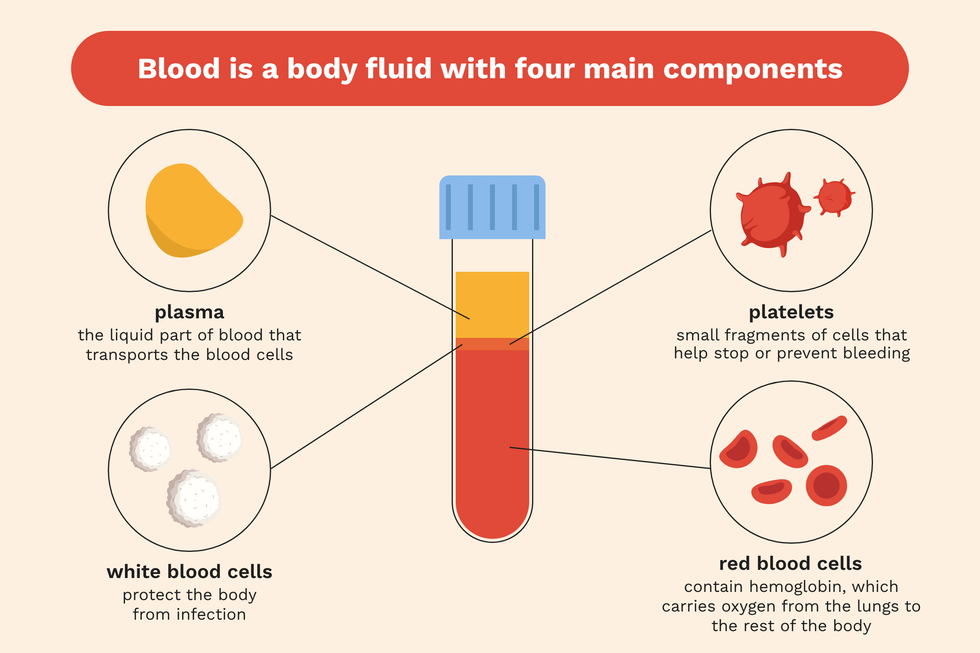Sydney Kodatsky had had migraine headaches before but none that caused sudden, complete vision loss. This time, when Kodatsky removed her goggles after swimming, her headache intensified and the world went black.
Her husband raced her to the emergency room, where they waited more than five hours only to be told her headache and vision loss were symptoms of a migraine headache. Still, the headache worsened, and her vision did not return. She visited her primary care doctor the next day because she was still experiencing spotty vision. The doctor told her to not worry because migraine headaches can sometimes last up to three weeks.
A healthy 28-year-old, Kodatsky recognized that her migraine headache was not typical for her but felt self-conscious about bothering doctors. Her mother, however, insisted that she consult a specialist. Kodatsky relented and made an appointment to visit a hematologist who ordered a blood test that revealed Kodatsky had an extremely rare, life-threatening autoimmune blood disorder called acquired thrombotic thrombocytopenic purpura, or aTTP. Her mother's insistence may have saved Kodatsky's life.
Rare but life-threatening
ATTP is a blood disorder that causes platelets to clump together to form small blood clots throughout the body. The disorder is associated with lower-than-normal levels of a protein called ADAMTS13, which is responsible for breaking up a different blood-clotting protein in the body. Without a normal level of ADAMTS13, the protein can build up in the bloodstream, triggering blood platelets to stick together and form clots that can slow blood flow to the heart, brain, kidneys and other organs. This can be deadly.

According to Dr. Camila Masias, a hematologist at the Miami Cancer Institute, aTTP can present with mild symptoms from fever, fatigue and bruising to a wide range of neurological symptoms, including headaches, confusion or difficulty talking or moving. In some cases, aTTP symptoms may resemble a stroke. People with the condition commonly experience fatigue and shortness of breath related to low levels of hemoglobin, a protein that transports oxygen in blood. In some but not all cases, tiny purple or red dots called petechiae appear. Petechiae can occur anywhere in people with aTTP but are most likely to occur in the lower body extremities.
ATTP is a rare disorder, diagnosed at a rate of only a few people per million per year worldwide. In fact, Masias said she only encounters aTTP in her specialty blood disorders practice about five times a year. Although women make up 80% of the aTTP patients she treats, the disorder impacts men as well. The signs and symptoms of aTTP tend to appear most frequently between the ages of 30 and 50.
If a patient presents with symptoms, their healthcare provider likely will check key indicators of blood health, including the levels of ADAMTS13. However, because aTTP is a medical emergency, the hematologist will often make a clinical diagnosis based on the symptoms before the test results are in and start administering treatment.
While the cause is not well understood, doctors have identified triggers that may be associated with aTTP. "These triggers include viral illnesses, stress, pregnancy or surgeries," Masias said, "but we are still unsure why some people develop aTTP while others don't."
If left untreated, some research has shown that up to 90% of people with aTTP die from an episode. Treatment does exist, and if possible, patients should try to find someone who specializes in aTTP, such as a hematologist.
While some patients may never experience a relapse, some, like Kodatsky, experience multiple episodes of aTTP.
Long-term effects of aTTP
"After the acute episode has resolved, there are a number of long-term side effects seen in patients with aTTP," Masias explained. These long-term effects can affect mental health, sometimes causing depression and posttraumatic stress disorder (PTSD). Physical side effects can also remain in the form of headaches, hypertension and memory impairment.
Masias added, "We don't really know how this happens and why some people develop this, but we are doing research to find out. With rare diseases, doing clinical trials is extremely challenging, because, of course, it is harder to recruit patients, and this makes progress slower."
Finding support through advocacy
Kodatsky has taken proactive measures to gather her community and raise money for more research. Supported by a few friends and family members, she started a nonprofit organization, Answering TTP Foundation, to help provide support for people with aTTP and raise money for new therapies that will, Kodatsky said, hopefully make every crisis less deadly.
Kodatsky feels grateful for her mom's insistence that she visit a specialist and to all those who helped her through the six episodes of aTTP she has experienced during her life. She said she silently thanks the people who have impacted her along the way while she receives her treatment for an episode. It's good karma, she explained. And she needs it.
"I don't buy lottery tickets," Kodatsky said. "All my good karma has to go to my health."
Resources
USTMA Consortium







